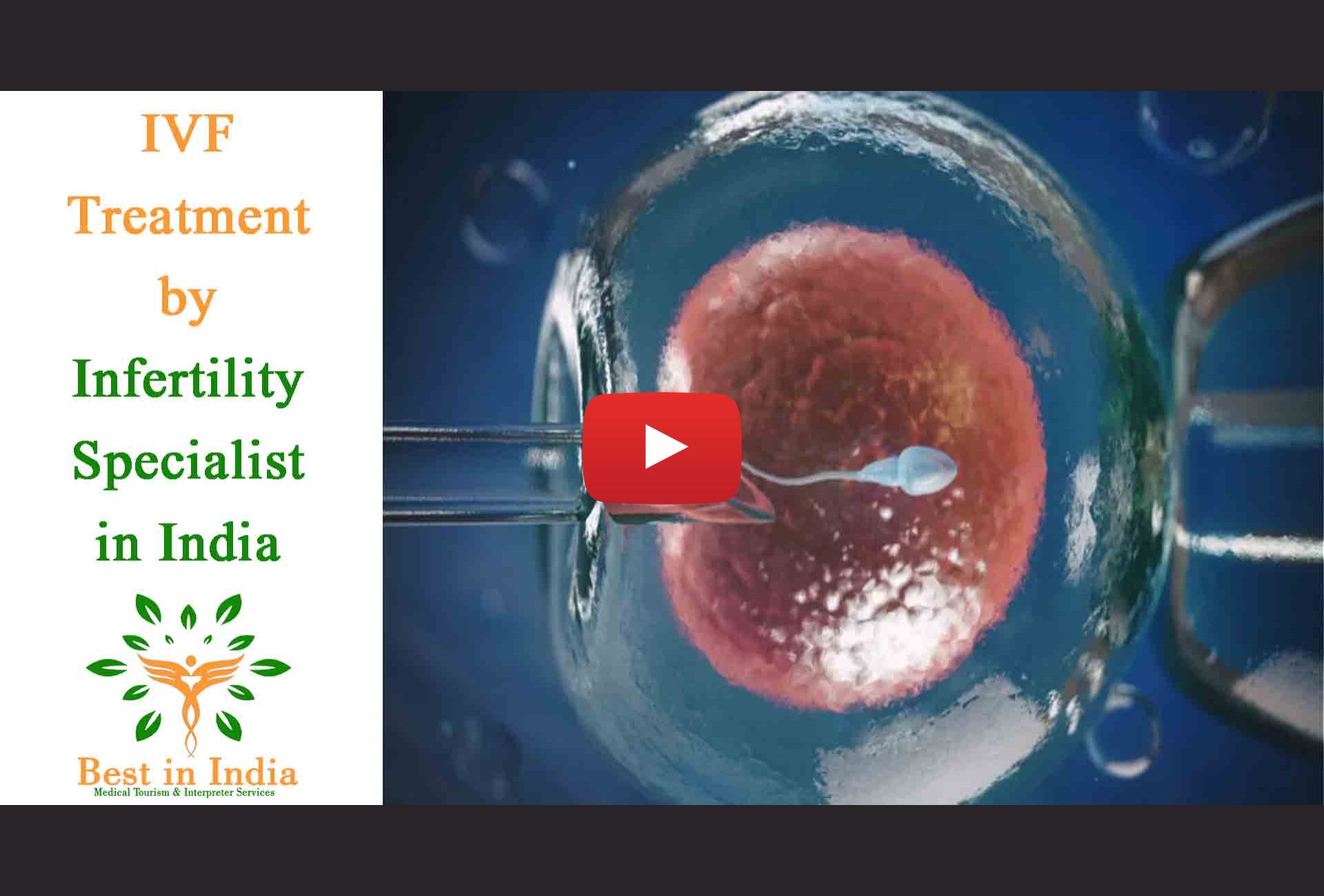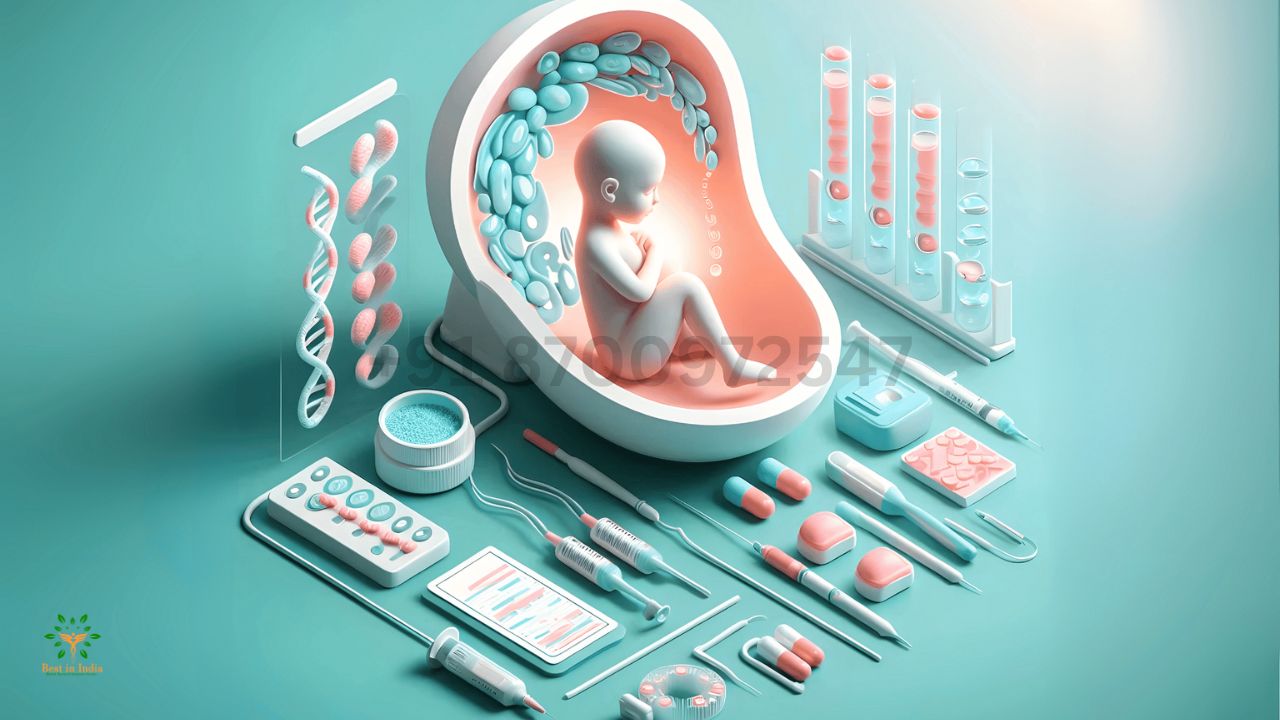
IVF - In Vitro Fertilization Treatment - With Highest Success Rate In India
Pregnancy brings joy as parents look forward to the birth of their baby, feeling excited and imagining their future. But for couples struggling with infertility, it's heartbreaking. They yearn for their child, facing disappointment and longing as their dream seems unattainable, leaving them with unanswered questions and deep sadness. For couples dreaming of a child, IVF treatment offers hope. With the help of IVF, they can overcome the problems of infertility and increase their chances of conceiving, making their dream of parenthood come true.
India has become an international hub for IVF treatment and people are flocking from different parts of the globe to seek fertility treatment solutions in India. IVF treatment in India is famous for its advanced facilities and qualified specialists. India offers a beacon of hope to couples struggling with infertility by providing IVF treatment and restoring dreams of parenthood.
What is IVF-in vitro fertilization (pregnancy and infertility treatment)?
In vitro fertilization (IVF) is a fertility treatment in which eggs are removed from a woman's ovaries and fertilized with sperm in a laboratory. The fertilized eggs or embryos are then transferred back into the woman's uterus in hopes of a successful pregnancy. IVF or IVF treatment is often used by couples struggling with infertility due to various reasons such as blocked fallopian tubes, low sperm count or unexplained infertility.
Synonyms: “in vitro fertilization”, “in vitro fertilization”, “artificial insemination”, in English denoted by the abbreviation IVF (in vitro fertilisation), IVF method
Why do people choose IVF pregnancy/IVF treatment in India?
IVF is very popular in India due to its numerous benefits.
- Affordability: IVF treatment in India is often more affordable compared to many other countries, making it accessible to a wider range of people. IVF centers in India are famous, but the cost of the procedure is cheaper.IVF is the first of its type since it publicly addresses the previously taboo subject of infertility.
- Quality Healthcare: India is known for its world-class healthcare facilities and skilled healthcare professionals. IVF Center in India provides quality infertility treatment and IVF method.
- Cutting-edge technology: IVF centers in India are equipped with the latest technology and infrastructure to help achieve successful results.
- Experienced Specialists: India boasts of a large number of experienced infertility specialists who are experienced in handling complex cases.
- Shorter waiting times. Unlike some other countries, IVF treatment in India often involves shorter waiting times for consultation, procedures and donor matching.
- Legal Framework: India has established legal frameworks governing assisted reproductive technologies, providing clarity and protection for both patients and clinics.
IVF Procedure in India Step by Step with Timeline
Initial procedures include consultation and physical examination. After a medical examination, our experts will work with you to continue further investigations to determine the actual cause of your infertility.
IVF procedure in India Step 1: Starting the IVF pregnancy process - searching for the cause of infertility
Infertility can be the result of various factors in both men and women. Here is a list of possible reasons:
- Ovulation disorders
- Sperm disorders
- Damage/obstruction of the fallopian tubes
- Diseases of the uterus/cervical canal
- Endocrine disorders.
- Lifestyle factors (smoking, alcohol, obesity)
- Sexually transmitted infections
- Genetic factors
- Environmental toxins
- Chronic diseases
- Medicines
- Psychological factors
- Unknown reasons
During the initial consultation, the doctor will evaluate the medical history of both partners. It is extremely important to provide truthful information. After the examination, the doctor may recommend an IVF procedure. At this stage you will undergo pre-IVF tests, including:
- Blood tests
- Male fertility testing, including semen analysis.
- Ultrasound
- Screening for infectious diseases.
- Uterine assessment
These tests provide comprehensive information about your condition and help determine the underlying cause of infertility.
Pregnancy with IVF in India Step 2:
Next steps after pre-IVF tests usually include consultation and treatment planning
IVF in India Step 3: Ovarian stimulation
Hormonal injections are prescribed to stimulate the production of eggs in women undergoing IVF. This increases the number of eggs available for fertilization, exceeding the typical monthly production of one egg per woman.
IVF Treatment in India Step 4: Egg and sperm retrieval process
Once egg production is stimulated, they are removed from the ovaries using a procedure called follicular aspiration, performed under sedation and ultrasound guidance. At the same time, fresh sperm is collected from the male partner. If the male partner is infertile, sperm can be obtained surgically in advance. The collected sperm is processed in a laboratory where the sperm are cleaned and prepared for fertilization.
IVF in India Step 5: Fertilization (conventional insemination or ICSI)
Next, the egg is fertilized by a sperm. This can happen either by directly injecting the sperm into the egg, or by placing the sperm and eggs together in a petri dish for natural fertilization (IVF), as determined by the doctor's assessment of the fertilization rate.
In the laboratory, doctors use methods to promote a successful pregnancy:
- Intracytoplasmic sperm injection (ICSI): Direct injection of healthy sperm into the egg to solve male fertility problems.
- Assisted hatching: creating a small hole in the outer membrane of the embryo to improve the implantation process after transfer.
- Preimplantation Genetic Screening (PGS): Ensures only healthy embryos are transferred, applies to both fresh and frozen embryos.
IVF in India: Step 6 - Embryo cultivation
It takes six days for a fertilized egg to develop into a blastocyst, which is made up of numerous cells. Once a certain size is reached, the blastocyst prepares for implantation into the uterus. Experts recommend sometimes freezing embryos to increase the chances of successful implantation.
IVF in India: Step 7 - Embryo Transfer
An embryologist evaluates the embryos before they are transferred into the uterus through a small catheter. To prepare the uterus for implantation of embryos, the patient is prescribed medications. The uterus is then left empty to allow implantation of the embryos.
Success Rates of infertility treatment - IVF in India
While the success rate depends on many factors, especially age and the cause of infertility, advances in technology have significantly increased the success rate of in vitro fertilization (IVF) in India, which currently ranges from 50% to 70%. Therefore, one cycle of IVF may not be enough for successful conception. In some cases, it is necessary to carry out several IVF cycles, including several iterations of the six-step procedure. However, among all assisted reproductive procedures, IVF remains the most successful.
Cost of (Pregnancy or infertility treatment) IVF treatment in India / IVF Cost in India / IVF Price in India
The cost of IVF treatment or IVF procedure also varies from hospital to hospital. The best technology and infrastructure are used by some of India's leading institutions, including Best in India Hospitals, to provide the most efficient and successful IVF surgeries. Best in India has experienced doctors and embryologists and uses the best technology and equipment in the market. These IVF hospitals/centers charge between $2,500 and $3,700 for each cycle (eco cost of the procedure) of IVF therapy, including the cost of medications, consultation, and the surgery itself.



